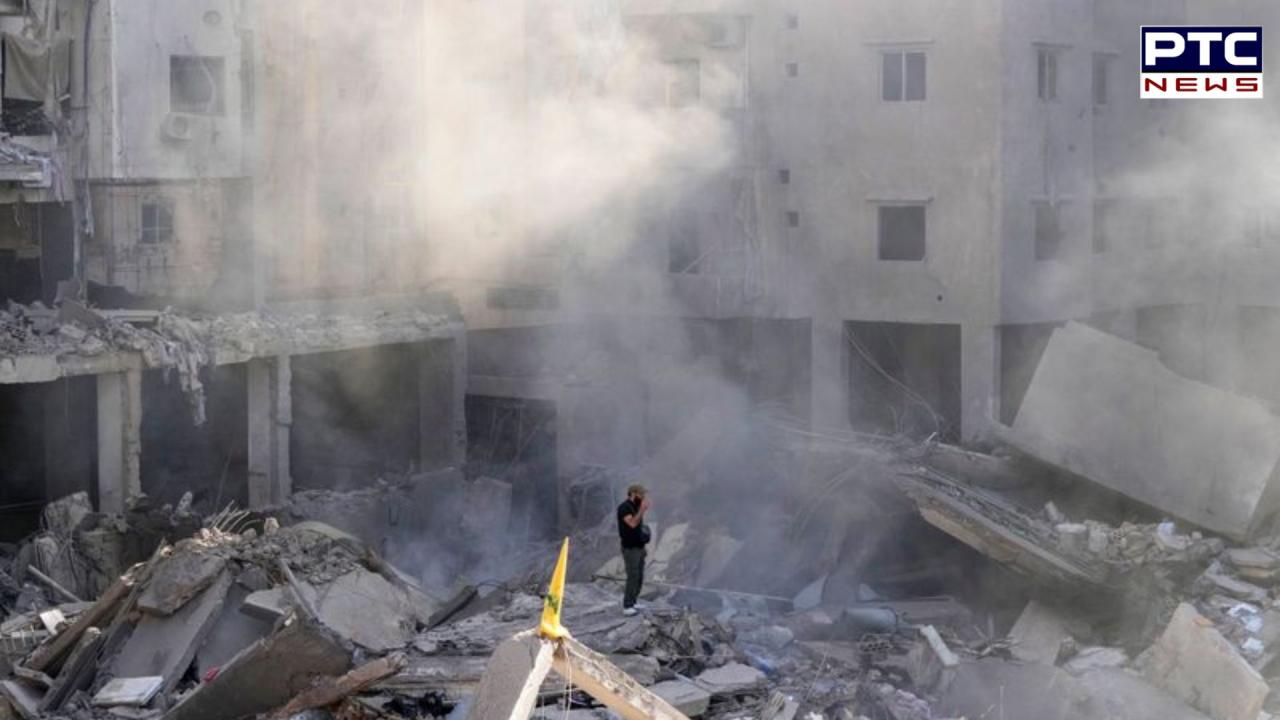Israeli airstrike kills another senior Hezbollah leader amid escalating tensions
Nabil Kaouk, deputy head of Hezbollah's central council, was killed in attack on Saturday

PTC News Desk: The Israeli military announced on Sunday that it had killed another high-ranking Hezbollah official, Nabil Kaouk, in an airstrike, further weakening the Lebanese militant group, which has been reeling from recent attacks. This strike follows the killing of Hezbollah's overall leader, Hassan Nasrallah, marking a series of significant blows to the organisation.
Kaouk, who served as the deputy head of Hezbollah's Central Council, was reportedly killed on Saturday, though there has been no immediate comment from Hezbollah. The exact location of the strike remains unconfirmed.
If Kaouk’s death is verified, he would be the seventh senior Hezbollah leader killed in Israeli airstrikes within just over a week. Among the slain leaders were founding members of Hezbollah who had managed to evade capture or death for decades.
The Israeli military also confirmed that it carried out another airstrike on Beirut on Sunday, promising further details later. In a separate confirmation, Hezbollah acknowledged the death of Ali Karaki, one of the senior leaders, in a Friday strike that also killed Nasrallah. This airstrike targeted an underground bunker in Beirut where Nasrallah and other senior Hezbollah officials were gathered.
In addition to physical strikes, Hezbollah has been hit by a sophisticated attack on its communications systems, including pagers and walkie-talkies, a move widely attributed to Israel. The conflict has seen relentless Israeli airstrikes across Lebanon, which the Lebanese Health Ministry reports have resulted in over 1,030 deaths, including 156 women and 87 children, in less than two weeks.
The ongoing Israeli strikes have forced hundreds of thousands of Lebanese civilians from their homes. According to the Lebanese government, approximately 250,000 people are currently housed in shelters, while many more have taken refuge with relatives, friends, or are living on the streets. Environment Minister Nasser Yassin reported these numbers to The Associated Press, emphasising the vast scale of displacement.
Despite these setbacks, Hezbollah has continued to fire rockets and missiles into northern Israel, though most have been intercepted or landed in uninhabited areas. As of now, no Israeli civilians have been killed since Israel began targeting top Hezbollah leaders on September 20.
Also Read: Terrorist killed in Kathua, J&K; operation still in progress
Nabil Kaouk, a veteran Hezbollah member since the 1980s, was a significant figure in the group’s military and political strategy. He commanded Hezbollah’s forces in southern Lebanon during the 2006 war with Israel and was a prominent media figure, often commenting on security issues and delivering eulogies at the funerals of senior militants. In 2020, the U.S. government imposed sanctions on Kaouk due to his role in Hezbollah's operations.
The current conflict between Israel and Hezbollah escalated after Hamas launched a surprise attack on Israel from Gaza on October 7. Hezbollah, an ally of Hamas, joined the fight by launching rockets, missiles, and drones into northern Israel. Both groups are part of the Iran-backed "Axis of Resistance," which opposes Israel's presence in the region.
Israel has responded with intense airstrikes, pushing the conflict closer to the brink of an all-out regional war. The Israeli government is determined to return approximately 60,000 citizens to the northern communities evacuated nearly a year ago.
Hezbollah, however, has indicated that it will continue its rocket fire unless a ceasefire is achieved in Gaza. Despite months of indirect negotiations involving the U.S., Qatar, and Egypt, a ceasefire between Israel and Hamas remains elusive, leaving the region on edge.
